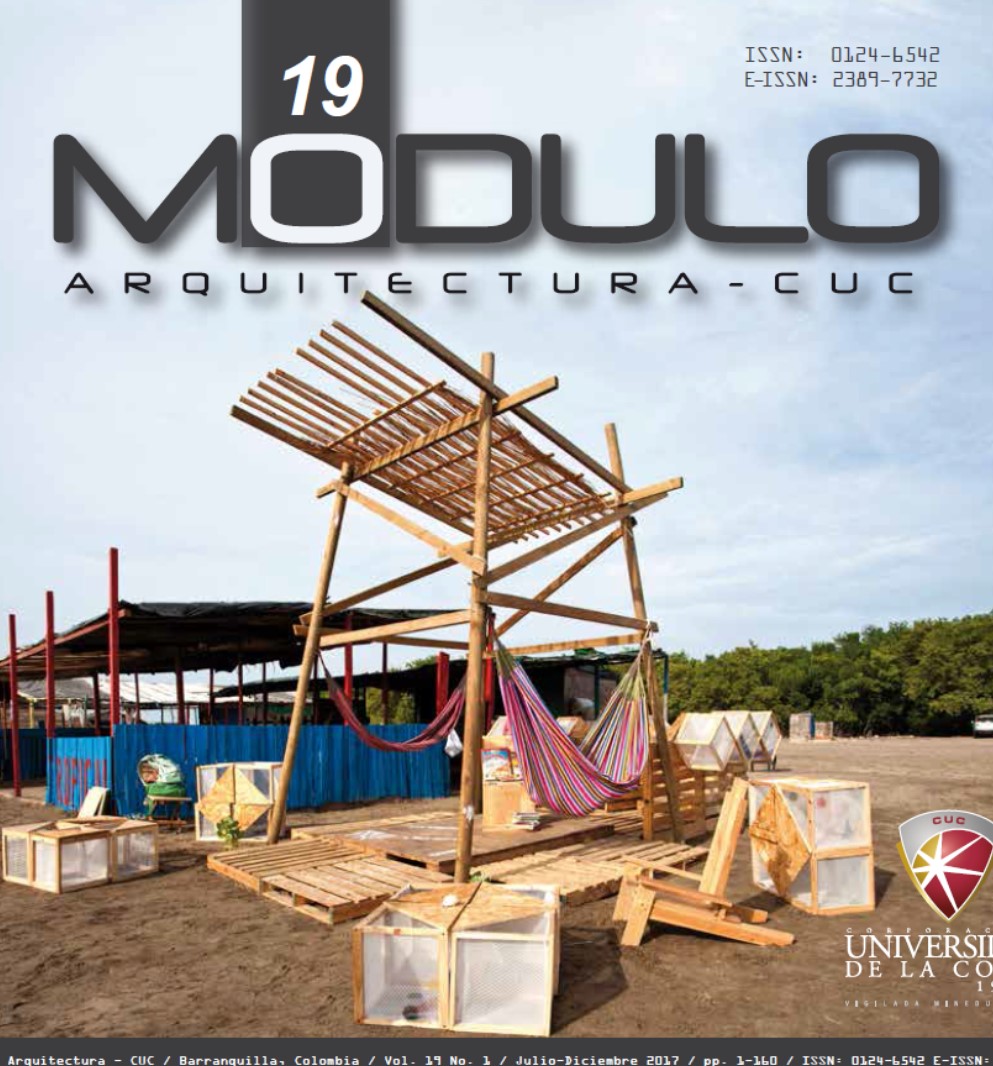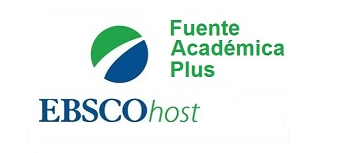The Architectural Heritage as an Interdisciplinary Communication Space
DOI:
https://doi.org/10.17981/moducuc.19.1.2017.02Keywords:
Visual arts, architecture, communication, interdiciplinarity, heritageAbstract
Architecture, from its beginnings, is considered as the greatest achievement of the human being since in its
purpose, function and form it gathers all the elements that allow referencing a society, whatever it is, in any
part of the world. Architecture translates the material and spiritual aspirations of the human being; it is the field in which man develops, evolves and may even come to an end. Ironically, when the man comes to an end, the testimony of his existence is the architectural vestige that speaks of that man and his community, like a book, which opens completely in multiple pages and heritage is the narrative that allows between lines and paragraphs identify a story. This document arises from a research project that showed how, from the built-up good, it is possible with an interdisciplinary intervention system of art, design and visual communication, to value the formal and typological essence of the property, starting from a visual poetics that updates it and puts it into value by returning its materiality to the imaginary of a community that finally recognizes and values it through an image that speaks more than a thousand words.
Downloads
References
De Piccoli, G. (2017). Patrimonio, Imagen y Diseño [Conferencia]. En, La Ruta del Sol. Universidad Santo Tomas, Piedecuesta.
Dewey, J. (2008). El Arte como Experiencia. Barcelona: Paidós. Recuperado de http://archivos.liccom.edu.uy/Figuras/ Dewey,%20John%20-%20El%20 arte%20como%20experiencia.pdf
Fernández. J. (2017). Los mecenas del Arte. El Confidencial [Arte]. Recuperado de https://www.gentleman.elconfidencial.com/reportajes/2017-01-30/ mecenas-arte-moda-tods- coliseoroma_1322547/
Hinostroza, T. (2016). Transvertir: Arquitectura, Cuerpo e Indumentaria se unen a través de la Fotografía. Modacl [Moda]. Recuperado de http://www.modacl. com/index.php/2016/06/30/trasvestirarquitectura-cuerpo-e- indumentariase-unen-a-traves-de-la-fotografia
Llanos, R. (1997). Crónicas de Barranquilla. El Tiempo [Archivo]. Recuperado de https://www.eltiempo.com/archivo/ documento/MAM-528411
Norberg-Schultz, C. (2008). El pensamiento de Heidegger sobre la arquitectura. Discusiones filosóficas, 9(13),
-100.
Porro, J. (2014). Sociología del consumo social. En, Manual Atalaya, Apoyo a la Gestión Social. Recuperado de http:// atalayagestioncultural.es/capitulo/ sociologia-consumo-cultural
Ricaurte, P. (2014). Hacia una semiótica de la memoria. Enclaves del Pensamiento, 8(16), 31-54. Disponible: http://www. redalyc.org/pdf/1411/141132947002. pdf
Romero, J. (2017). Inmanuel Kant y la estética: La formulación de la estética kantiana. Recuperado de: https://
www.aboutespanol.com/inmanuelkant-y-la-estetica-1283773.
Ruiz, G. (2013). La teoría de la experiencia de John Dewey: significación histórica y vigencia en el debate teórico contemporáneo. Foro de Educación, 15(1) 103-124. doi: http://dx.doi.org/10.14516/ fde.2013.011.015.005
Sierra, A. y Perdomo, R. (2018). Centro Cultural del Oriente. Patrimonio urbano de Bucaramanga. Recuperado de: http:// historiaabierta.org/mapa/items/show/23
Sociedad de los Hermanos de la Caridad (2017). Cicloruta, Centro Histórico de Barranquilla, [Comentario]. Recuperado de https://ciclorutabch.tumblr. com/post/99465624515/cementeriouniversal-direcci%C3%B3n-calle-47
Vanguardia, (2016). No hay proyecto a corto plazo para la antigua Normal. Recuperado de http://www.vanguardia.com/ santander/barrancabermeja/355282- no-hay-proyecto-a-corto-plazo-parala- antigua-normal
Downloads
Published
How to Cite
Issue
Section
License
Copyright (c) 2017 Giovanni Giuseppe De Piccoli Cordoba

This work is licensed under a Creative Commons Attribution-NonCommercial-NoDerivatives 4.0 International License.
CC Reconocimiento-NoComercial-SinObrasDerivadas 4.0



 English
English
 Español (España)
Español (España)






